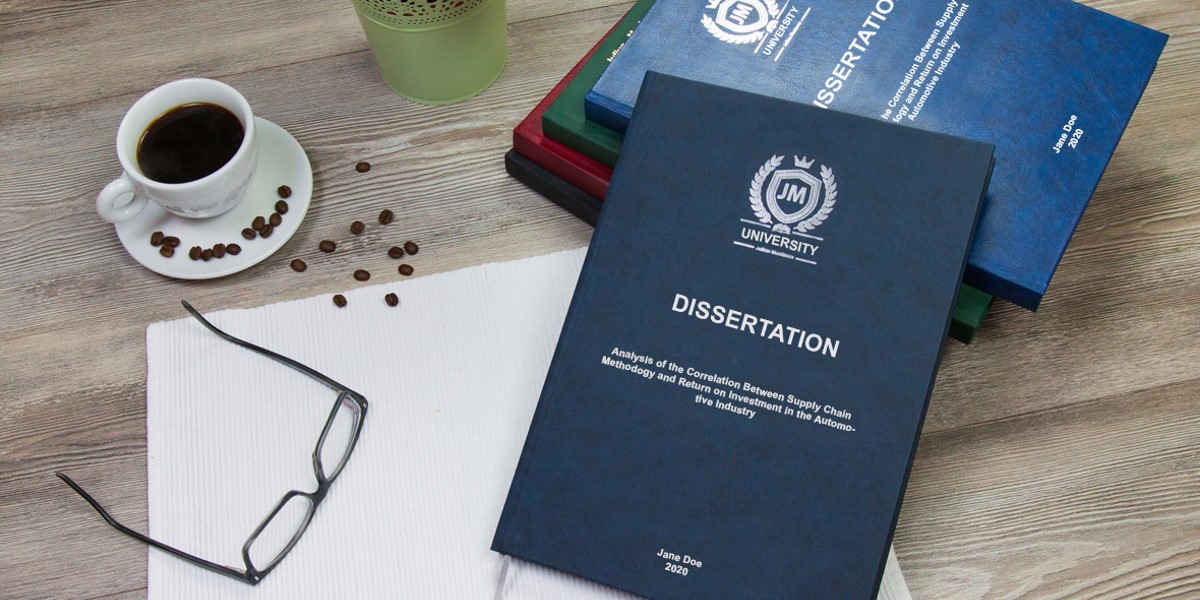How to Ace Your MBA Dissertation in the UK: A Step-by-Step Guide
How to Ace Your MBA Dissertation in the UK: A Step-by-Step Guide

Ace Your MBA Dissertation in the UK: Step-by-Step GuideUnderstanding the MBA Dissertation Process in the UK
Completing an MBA dissertation in the UK is an essential component of earning your degree. It involves independent research, critical thinking, and a structured approach. A well-executed dissertation not only showcases your academic skills but also enhances your future career opportunities. Below is a step-by-step guide to help you ace your MBA dissertation in the UK.
What is an MBA Dissertation?
An MBA dissertation is a comprehensive, research-based project that allows you to demonstrate your ability to apply the knowledge gained throughout your course. It typically involves analyzing a business problem, providing solutions, and contributing new insights to your field. Your dissertation is an opportunity to display your expertise, critical thinking, and ability to conduct meaningful research.
Key Areas to Focus On
-
Research Question
-
Literature Review
-
Methodology
-
Data Analysis
-
Conclusion and Recommendations
-
Formatting and Referencing
Step 1: Choosing the Right Dissertation Topic
Selecting a strong, relevant dissertation topic is crucial. It should not only align with your interests but also contribute to existing knowledge in the business field. Here are a few tips for choosing the right topic:
-
Relevance: Make sure your topic is relevant to current business trends and issues.
-
Interest: Choose a topic that genuinely interests you, as you will be spending a lot of time researching and writing about it.
-
Resources: Ensure there is enough material available for research.
Popular MBA Dissertation Topics
-
The impact of corporate governance on financial performance
-
Strategic marketing in the digital age
-
Leadership styles and organizational change
-
The role of sustainability in modern business practices
-
Financial analysis of mergers and acquisitions
Step 2: Conducting In-Depth Research
Once you’ve selected your topic, it’s time to gather the necessary data. Conducting thorough research is key to producing a quality dissertation.
Types of Research Methods
-
Primary Research: Involves collecting original data through surveys, interviews, and case studies.
-
Secondary Research: Utilizes existing data from books, articles, journals, and online sources.
-
Qualitative Research: Focuses on understanding concepts, opinions, or experiences.
-
Quantitative Research: Deals with numerical data and statistical analysis.
Tips for Effective Research
-
Organize your research material into categories.
-
Use academic databases such as JSTOR, Google Scholar, and university libraries.
-
Keep track of all references and sources for citation purposes.
Step 3: Structuring Your MBA Dissertation
The structure of your dissertation is important for clarity and coherence. Each section plays a vital role in communicating your research effectively.
Typical Dissertation Structure
-
Introduction: Introduces your research question and objectives.
-
Literature Review: Reviews existing research and identifies gaps in knowledge.
-
Methodology: Describes the research methods you used and explains why they were chosen.
-
Findings: Presents the results of your research and analysis.
-
Discussion: Interprets the findings and connects them to existing literature.
-
Conclusion and Recommendations: Summarizes the research and offers practical suggestions based on the findings.
Important Points to Remember
-
Stay focused on your research question throughout.
-
Be clear and concise when writing each section.
-
Use headings and subheadings to organize your content.
Step 4: Writing and Drafting Your Dissertation
Writing your dissertation can be a time-consuming process, but breaking it down into manageable sections can make it easier.
Creating a Writing Plan
-
Set a Timeline: Break down the writing process into smaller tasks with deadlines.
-
Draft Each Section: Start with a rough draft of each section and revise as needed.
-
Write in Phases: Begin with the introduction and literature review, then move on to methodology, results, and discussion.
Tips for Effective Writing
-
Use formal academic language.
-
Be clear and avoid ambiguity.
-
Avoid unnecessary jargon.
-
Cite your sources correctly using the appropriate referencing style (e.g., Harvard, APA, MLA).
Step 5: Analyzing Your Data
For a successful MBA dissertation, data analysis is essential, especially if you are conducting primary research. This section is where you analyze the data you’ve gathered and draw meaningful conclusions from it.
Common Data Analysis Techniques
-
Statistical Analysis: Use software like SPSS or Excel to analyze numerical data.
-
Thematic Analysis: Identify patterns or themes in qualitative data.
-
Comparative Analysis: Compare different sets of data to draw conclusions.
Tips for Data Analysis
-
Be objective when analyzing the data.
-
Use graphs, charts, and tables to present your findings clearly.
-
Ensure that your analysis directly addresses your research question.
Step 6: Finalizing Your MBA Dissertation
After drafting the main content, it’s time to revise and finalize your dissertation. This stage involves proofreading, formatting, and ensuring everything is aligned with your university’s requirements.
Checklist for Finalizing Your Dissertation
-
Proofread for grammar, spelling, and punctuation errors.
-
Ensure consistency in formatting, such as font size, margins, and headings.
-
Double-check all citations and references.
-
Confirm that your dissertation meets your university’s word count and formatting guidelines.
Tips for Reviewing and Proofreading
-
Take a break before proofreading to approach the text with a fresh mind.
-
Use grammar-checking tools, but don’t rely on them entirely.
-
Consider asking a peer or supervisor to review your dissertation.
Step 7: Submitting Your MBA Dissertation
Once you’re satisfied with your dissertation, the final step is submission. Ensure you meet all deadlines set by your university.
Submission Guidelines
-
Online Submission: Many universities now require electronic submission via portals like Turnitin.
-
Hard Copy: Some institutions may still require a printed version to be submitted to the department.
-
Formatting: Ensure your dissertation is formatted according to your university’s specifications.
Step 8: Defending Your MBA Dissertation
In some universities, you may be required to defend your dissertation in front of a panel of experts. This is an opportunity to showcase your research and respond to questions related to your findings.
Tips for Preparing for Your Defense
-
Prepare a brief presentation summarizing your research.
-
Be ready to discuss the methodology, results, and conclusions in detail.
-
Practice answering potential questions from the panel.
Conclusion
Successfully completing your MBA dissertation requires careful planning, in-depth research, and a structured approach. By following this step-by-step guide, you’ll be able to manage your time effectively, conduct meaningful research, and produce a dissertation that meets academic standards.
For students looking for further academic support, resources such as Law Assignment Help UK can offer valuable guidance on legal writing. Additionally, Dissertation Help UK provides specialized services for MBA students looking for assistance with their dissertation research and writing. If you’re juggling multiple assignments, Do My Assignment Online UK can help you stay on track.
By following these steps and ensuring that you invest the necessary time and effort into your work, you’ll be well on your way to acing your MBA dissertation and achieving academic success.







